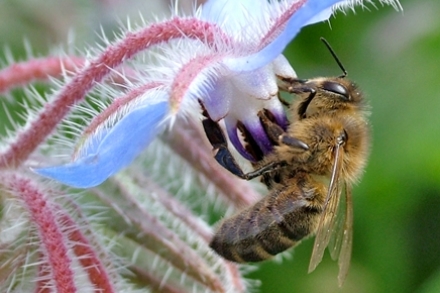To Bee or Not To Bee

As news of falling honey bee numbers hits the headlines again, Karin Alton and Francis Ratnieks explain why encouraging urban beekeeping may not be the answer in the UK
The Biologist Vol 60(4) p12-15
Honey bees, although still a common insect, have declined significantly in number over the past century. This winter's losses of honey bee colonies were the worst since records began six years ago, according to a survey carried out by the British Beekeepers Association. The number of managed hives in England is also believed to have fallen from 300,000 to 135,000 in the past 60 years (Defra; National Bee Unit database, and in Potts et al, 2010).
Urban beekeeping, however, has never been more popular. But instead of providing a helpful solution to the reduced population of honey bees, more city hives could be doing more harm than good.
Many causes for the decline in bee numbers have been suggested, including factors that are likely – and unlikely, such as mobile phones. Most bee scientists, however, would probably rank agricultural intensification (large areas of high intensity farming) as the main cause (Goulson et al, 2008).
Since World War II the spread of intensive farming has greatly reduced areas rich in wildflowers, such as hay meadows. This is especially significant in the UK, where 75% of the total land is agricultural. Honey bees have many pests and diseases, including...
Want to continue reading this article?
Click to login.


